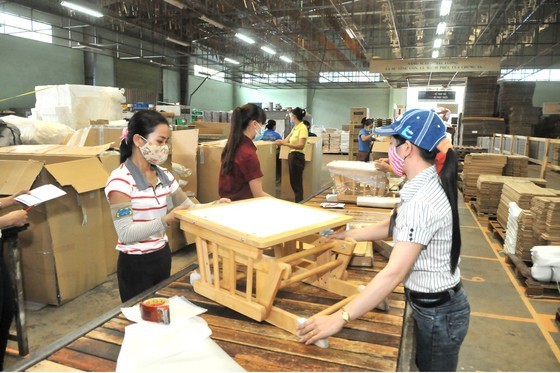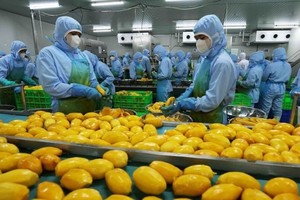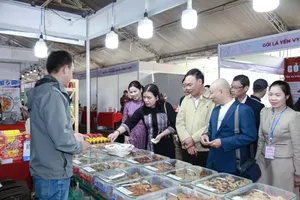Vietnam, the second largest wood pellet producer in the world, after the US, recently inked a deal to provide wood pellets for Japan over three years, according to the wood pellet branch under the Vietnam Timber and Forest Product Association (VIFOREST).
 |
Illustrative photo |
In the first six months of this year, Japan – one of three biggest importers of Vietnamese wood pellets splashed out US$195 million on purchasing 1.16 million pellets from Vietnam, up 28.88 percent in value and 5.65 percent in volume as compared to the same time last year.
Shipments to the Republic of Korea (RoK) have also showed signs of growth recently.
Nguyen Thanh Phong, head of the wood pellet branch, said demand for the products in the Korean market will increase in the coming months, with the estimated volume of some 100,000 tons a month.
Similarly, there will be an increase in the demand for wood pellets in the EU market, he said, given the global commitments to reducing emissions and promoting the use of bioenergy that have created opportunities for wood pellet exports in the remaining months of 2023.
According to the General Department of Vietnam Customs, Vietnam shipped 4.9 million wood pellets abroad, and gained US$0.79 billion in revenue in 2022. Over 95 percent of the exports were destined for Japan and the Republic of Korea, which used the pellets as a fuel for electricity generation.
According to the report entitled, “Vietnam’s Production and Export of Wood Pellets Status and Concerns” released by a joint research team from the the Forest Trends and several Vietnamese timber associations in July, global demand for wood pellets is expected to continue to dramatically increase, reaching 36 million tons in the next decade, up from 14 million tons in 2017.
Japan consumes around 8 million tons of pellets a year, 50-60 percent of which are made from wood. Pellet demand in the East Asian country is forecast to rise to 20 million tons by 2030, with 13-15 million tons made from compressed wood fiber.
This is a golden chance for Vietnamese wood pellet producers and exporters, especially those with stable sources of materials and sustainable forest management certificates.
However, high prices of inputs due to shortage of supply have caused a lot of difficulties for wood pellets producers recently, the research team said, adding enterprises are expecting a recovery in furniture orders as it will help ease pressure on prices of raw materials for wood pellets.
VIFOREST President Do Xuan Lap said the wood pellet industry is developing strongly, bringing significant value to the forestry value chain, elaborating that wood pellets ranked 4th in terms of export value of eight export items and forest products, just behind interior and exterior furniture, wood materials and wood chips.
The pellets are likely to become one of Vietnam’s key export agro-forestry products with an estimated export turnover of US$1 billion in 2023, he added.
Along with exports, experts said the industry has opportunities to thrive right in the domestic market as the Government is striving to carry out commitments to cutting greenhouse gas emissions and using clean energy, including the swap of coal for wood fuel.
Under the National Power Development Plan VIII, Vietnam targets that by 2050, coal will have no longer been used for power generation but biomass and ammoniac instead. Therefore, there is a strong possibility that domestic demand for wood pellets will increase sharply in the coming time.
In this context, experts suggested competent associations and enterprises should have sound forecasts on domestic consumption and global demand, as well as the supply of materials in the near future.
























